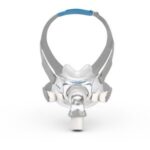In today’s fast-paced world, burnout has become increasingly prevalent, affecting individuals across all professions and walks of life. Defined as a state of emotional, physical, and mental exhaustion caused by prolonged stress, burnout can severely impact one’s overall well-being and productivity.
Understanding Burnout
Burnout isn’t just about feeling tired or stressed; it encompasses a deep sense of depletion where even simple tasks seem overwhelming. It often arises from chronic workplace stress, but can also stem from personal life challenges. Symptoms include persistent fatigue, reduced performance, and a cynical or detached outlook towards work and life in general.
Steps Towards Recovery
1. Self-Care: Prioritize self-care as the cornerstone of your recovery journey. This includes adequate sleep, nutritious eating, and regular exercise. Engaging in activities that bring you joy and relaxation can help replenish your energy levels.
2. Setting Boundaries: Learn to say no to excessive demands and set clear boundaries at work and in personal relationships. Establishing healthy limits prevents burnout from recurring.
3. Seeking Support: Don’t hesitate to reach out to supportive friends, family members, or professional counselors. Talking about your feelings and experiences can provide valuable perspective and emotional relief.
4. Mindfulness Practices: Incorporate mindfulness techniques such as meditation, deep breathing, or yoga into your daily routine. These practices promote stress reduction and enhance resilience.
Conclusion
Recovering from Burnout recovery is a gradual process that requires patience and dedication. By adopting a holistic approach that addresses both physical and emotional well-being, you can reclaim your vitality and rediscover joy in your everyday life. Remember, prioritizing self-care, setting boundaries, seeking support, and practicing mindfulness are key steps towards achieving long-term resilience and preventing future burnout episodes.
Overcoming burnout is not just about resting; it’s about redefining your relationship with stress and nurturing a lifestyle that supports your overall well-being. By taking proactive steps and embracing self-care practices, you can emerge stronger and more resilient than before.












